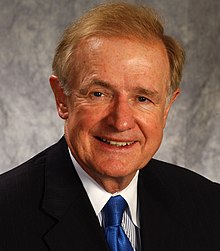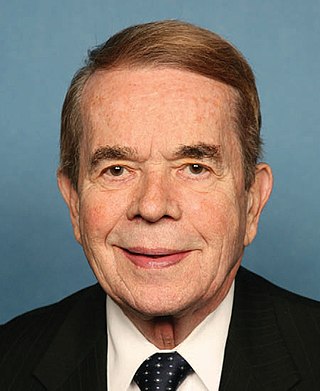
Dale Edward Kildee was an American politician who served as U.S. Representative of Michigan from 1977 to 2013. He was a member of the Democratic Party.

Sander Martin Levin is an American politician who served in the United States House of Representatives from 1983 to 2019, representing Michigan's 9th congressional district. Levin, a member of the Democratic Party from Michigan, is a former ranking member on the House Ways and Means Committee; he was Chairman of the Ways and Means Committee from 2010 to 2011. He was the older brother of former U.S. Senator Carl Levin, and is the father of former Congressman Andy Levin, his successor.
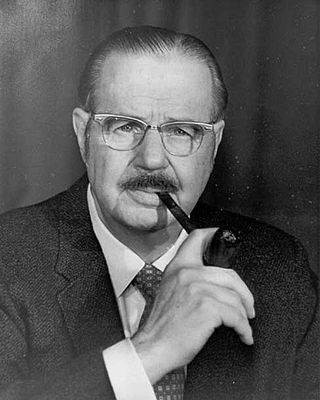
Hugh Doggett Scott Jr. was an American politician. A member of the Republican Party, he represented Pennsylvania in the U.S. House of Representatives from 1941 to 1945 and from 1947 to 1959 and in the U.S. Senate, from 1959 to 1977. He served as Senate Minority Leader from 1969 to 1977.
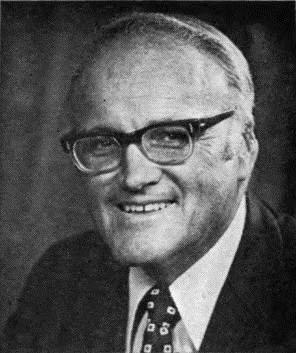
James Grant O'Hara was a soldier and politician from the U.S. state of Michigan, serving as U.S. Representative from 1959 to 1977.

The Democratic Caucus of the United States Senate, sometimes referred to as the Democratic Conference, is the formal organization of all senators who are part of the Democratic Party in the United States Senate. For the makeup of the 118th Congress, the caucus additionally includes three independent senators who caucus with the Democrats, bringing the current total to 51 members. The central organizational front for Democrats in the Senate, its primary function is communicating the party's message to all of its members under a single banner. The present chair of the Senate Democratic Caucus is Chuck Schumer of New York.

Peter Francis Welch is an American lawyer and politician serving since 2023 as the junior United States senator from Vermont. A member of the Democratic Party, he was the U.S. representative for Vermont's at-large congressional district from 2007 to 2023. He has been a major figure in Vermont politics for over four decades, and is only the second Democrat to be elected a senator from the state.

Charles Coles Diggs Jr. was an American politician from the U.S. state of Michigan who served in the state senate and U.S. House of Representatives. He was the first African American elected to Congress from Michigan.
In U.S. politics, an independent Democrat is an individual who loosely identifies with the ideals of the Democratic Party but chooses not to be a formal member of the party or is denied the Democratic nomination in a caucus or primary election. Independent Democrat is not a political party. Several elected officials, including members of Congress, have identified as independent Democrats.
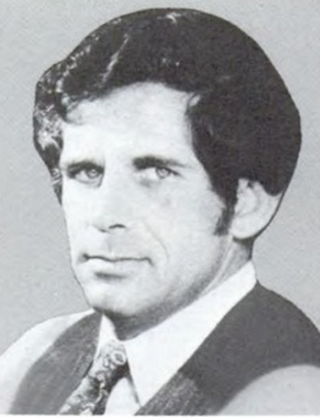
James Whitney Dunn is an American politician and businessman from the Michigan. He served in the U.S. House of Representatives from 1981 to 1983 before unsuccessfully seeking reelection. He ran for the Senate in 1984, losing the Republican primary to astronaut Jack R. Lousma, and in 1988, when he was defeated by Democratic incumbent Donald W. Riegle, Jr. He sought another term in the U.S. House in 1990, but lost in the Republican primary to Dave Camp, ending his electoral career.

Party divisions of United States Congresses have played a central role on the organization and operations of both chambers of the United States Congress—the Senate and the House of Representatives—since its establishment as the bicameral legislature of the Federal government of the United States in 1789. Political parties had not been anticipated when the U.S. Constitution was drafted in 1787, nor did they exist at the time the first Senate elections and House elections occurred in 1788 and 1789. Organized political parties developed in the U.S. in the 1790s, but political factions—from which organized parties evolved—began to appear almost immediately after the 1st Congress convened. Those who supported the Washington administration were referred to as "pro-administration" and would eventually form the Federalist Party, while those in opposition joined the emerging Democratic-Republican Party.
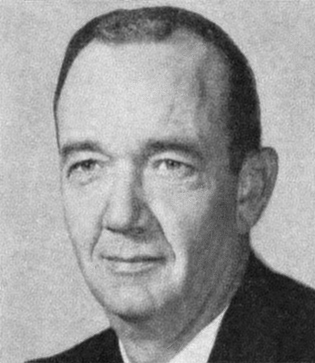
John Currie Mackie was an American World War II veteran and politician from the U.S. state of Michigan. He served one term in the U.S. House of Representatives from 1965 to 1967.
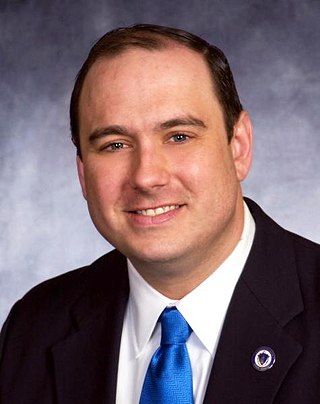
James Bradley Eldridge is an American politician and lawyer. He serves as a Democratic member of the Massachusetts Senate from the Middlesex and Worcester District. Eldridge previously served three terms in the Massachusetts House of Representatives, where he sat on the Joint Committee on Community Development and Small Business, the Joint Committee on Election Laws, and the Joint Committee on Public Service.
The Michigan Five Fluke Freshmen is the name given to five members of the U.S. House of Representatives who were elected in the Democratic landslide of 1964 and were subsequently defeated just two years later by a Republican resurgence. They included Paul Todd, Raymond Clevenger, Billie Farnum, John Mackie, and Wes Vivian of the U.S. House of Representatives from Michigan. All of the five were one-term congressmen. It was the last time that a state would have five freshmen members of Congress defeated for reelection.
Donald Wayne Riegle Sr. was a Michigan politician.

The 1994 United States Senate election in Michigan was held November 8, 1994. Incumbent Democratic U.S. Senator Don Riegle decided to retire and not run for re-election. Republican Spencer Abraham won the open seat, becoming the first Republican to win a U.S. Senate race in Michigan since Robert P. Griffin in 1972 and the first to win the state's Class I seat since Charles E. Potter in 1952. As of 2024, this was the only time since 1972 that Republicans won a U.S. Senate election in Michigan.

The 1976 United States Senate election in Michigan took place on November 2, 1976. Incumbent Democratic U.S. Senator Philip Hart decided to retire instead of seeking a fourth term because he had terminal cancer. Republican turned Democrat Representative Donald Riegle won the open seat, keeping it in Democrats' hands.

The 2018 Michigan gubernatorial election took place on November 6, 2018, to elect the next governor of Michigan, concurrently with the election of Michigan's Class I U.S. Senate seat, as well as other elections to the United States Senate in other states, elections to the United States House of Representatives, and various state and local elections.

The 2018 United States Senate election in Vermont was held November 6, 2018, alongside a gubernatorial election, U.S. House election, and other state and local elections. Incumbent independent Senator Bernie Sanders was re-elected to a third term. The primaries were held on August 14.

The 1970 United States Senate election in Michigan took place on November 3, 1970. Incumbent Democratic U.S. Senator Philip Hart was re-elected to a third term in office over former First Lady of Michigan Lenore Romney.
